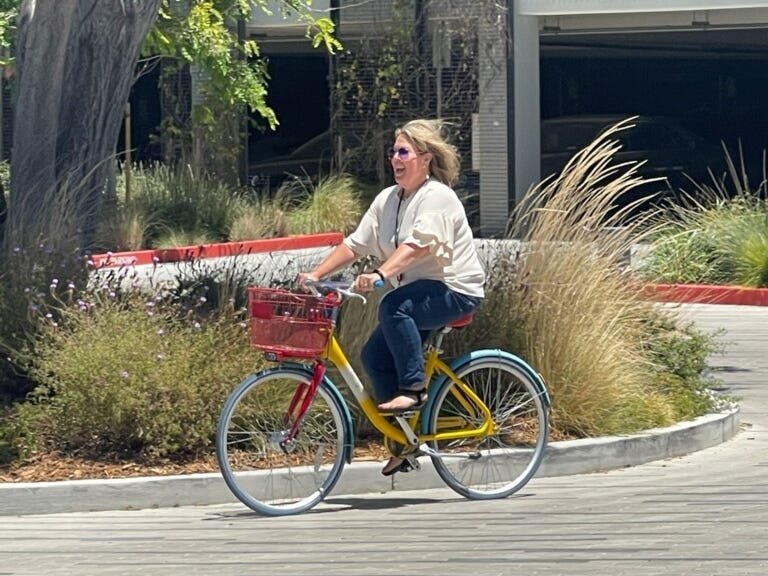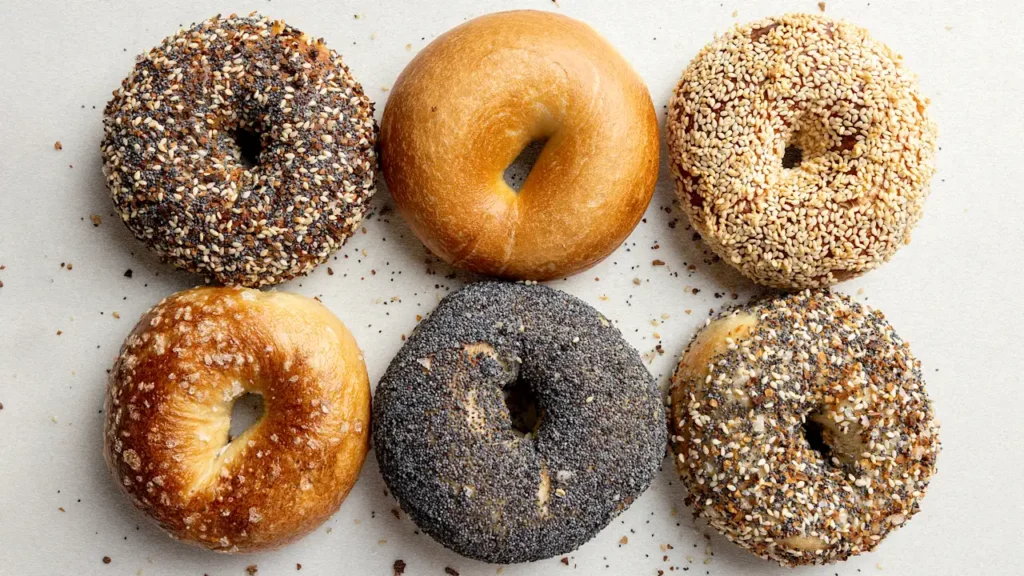
Bright and early on a recent Saturday morning, a line snaked around the block in Boston’s trendy Seaport District. People were patiently waiting to get their hands on PopUp Bagels—soft, steaming hot bagels designed to be torn and dipped directly into tubs of cream cheese or butter.
PopUp Bagels wants to help Americans reimagine our relationship with this beloved breakfast food, and it’s well on its way to doing so. Today, it announces an ambitious expansion from its 13 stores on the East Coast to a fleet of 300 stores from coast to coast with a focus on hubs like Atlanta; Nashville; and Orlando, Florida. “We’re bringing our stores to places where people don’t necessarily think of themselves as ‘bagel people’,” says Adam Goldberg, PopUp Bagels’ founder. “We’re introducing bagels into their routines.”
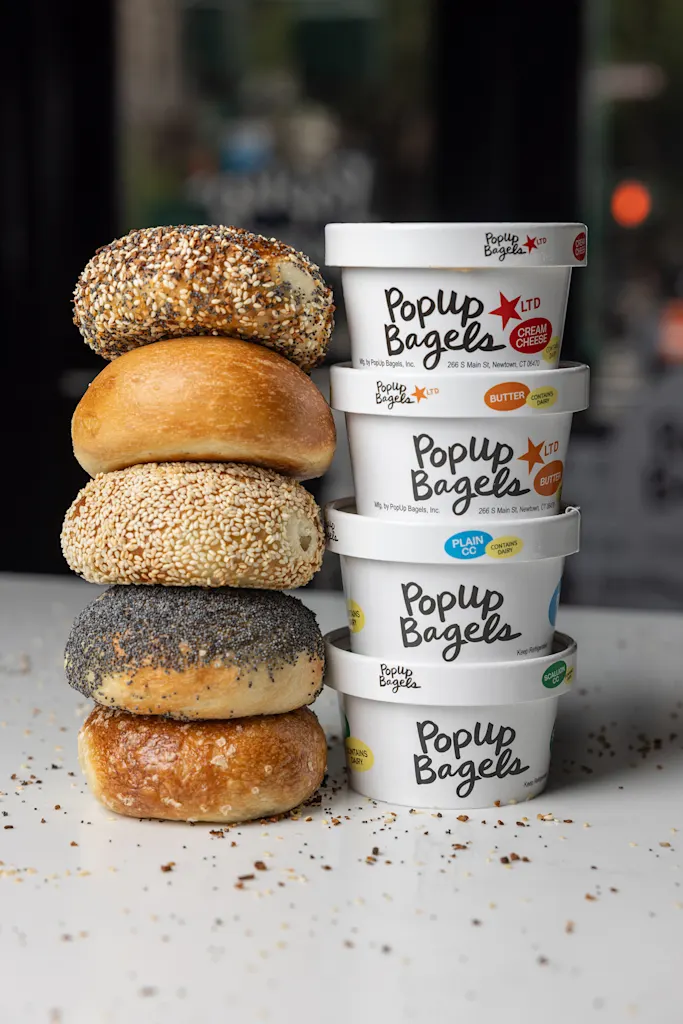
The company began as a pandemic hobby for Goldberg, a flood mitigation expert from Connecticut. In lockdown, Goldberg started baking. After trying his hand at sourdough bread, he moved on to bagels. With much tinkering, he developed a recipe for a bagel that had a softer, lighter texture than the dense bagels you find in New York. The bagels were so delicious friends and neighbors wanted to buy them by the dozen. Two years later, Goldberg began opening pop-up shops around New York City that attracted large crowds.
To many people, PopUp Bagels offers a fun new take on bagels. Most bagel shops bake their goods in the morning, then toast them for customers. But PopUp Bagels are meant to be served fresh from the oven. They’re satisfying to rip apart, with a crisp exterior that provides contrast with the soft interior. At the Seaport District, people were scattered at picnic tables and benches, dipping their bagels directly into different flavored schmears. They can also be eaten cold in a more traditional way, by slicing them and slathering them with cream cheese and lox.
Goldberg points out that the New York bagel has evolved over the years to become what it is. His bagels are actually reminiscent of those in New York shops from decades ago. “I’ve had so many New Yorkers tell me these bagels remind them of their childhood,” he says. “Back then, people lined up for hot bagels straight out of the oven, when they were at their peak performance.”
Part of the reason bagels stopped being served this way is that it is logistically challenging to serve them hot at scale. Each store needs to predict demand, then bake them at steady rate that keeps pace with the line. PopUp has turned this process into an art with the help of Tory Bartlett, whom Goldberg appointed as CEO last November. Bartlett, who previously saw the expansion of Moe’s Southwest Grill to 600 locations, is familiar with scaling food businesses.
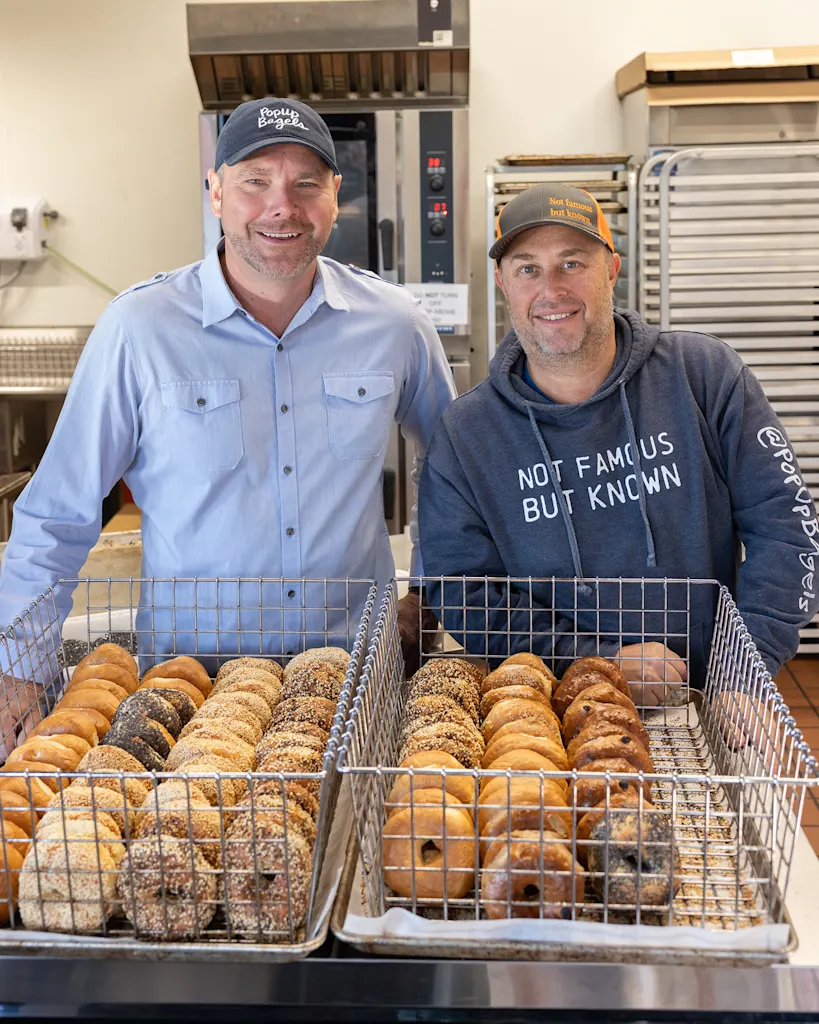
Bartlett says that PopUp Bagels has streamlined its operations by exclusively selling bagels and coffee; it doesn’t make sandwiches. It also sells bagels in bundles of three, six, or a dozen, rather than one at a time. (Prices vary from $13 to $15 for a three pack and a schmear, depending on the market.) This allows them to better predict demand and generate revenue. “The unit economics of a business needs to be competitive as you scale,” says Bartlett. “It’s hard to make money by selling one or two bagels at $3 a pop. But selling a three pack protects the transaction.”
Another reason the shops are profitable is that they don’t require a very large footprint. They just need a couple of ovens and a counter. Employees focus on quickly packing bags of bagels and schmears for customers. “We don’t need a lot of workers,” Bartlett says. “It’s a very streamlined operation.”
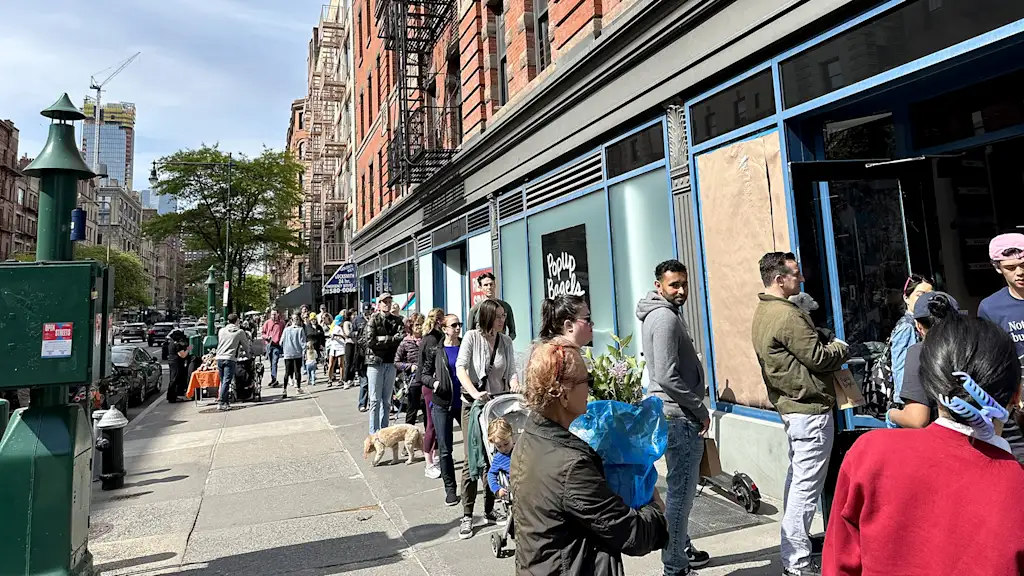
The efficiency of the business convinced Bartlett that it was possible to quickly scale PopUp. In 2023, the company received an infusion of $8 million Series A funding, and last year, it took a Series B round, both of which were led by Stripes, a growth equity firm. They then began the process of franchising PopUp.
Bartlett says they were extremely judicious about their partners. They’re only working with 15 franchisees, who will each run dozens of shops. “Thousands of people reached out to work with us, but we were extremely selective about whom we partnered with,” says Bartlett. “We picked people who are very passionate about this business.”
To keep the taste of the bagels consistent, PopUp will make the dough and disseminate regionally. This will allow the franchisees to focus on the operations of delivering hot bagels quickly.
If the other locations are any guide, there are likely to be long lines at all of these new stores, as people experience the novelty of the PopUp experience. But can the company keep up this level of interest? Goldberg has high hopes. “Conveniently, we’ve landed on a product that has been a staple for many people throughout their entire lives,” he says. “The fact that we’re making something that people love anyway gives us a head start.


